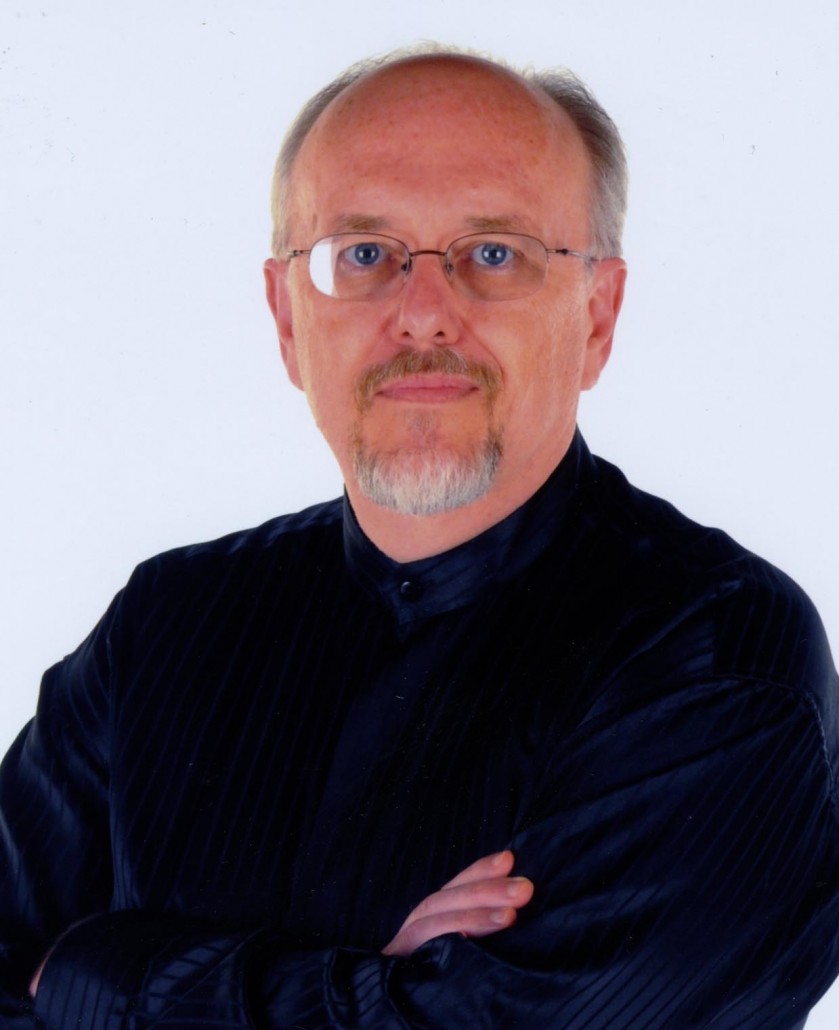The post Shore Dogs Restaurant Donates 75lbs of Meat to Feed Our First Responders first appeared on Christian International.
]]>The post Shore Dogs Restaurant Donates 75lbs of Meat to Feed Our First Responders first appeared on Christian International.
]]>By Dr. Tim Hamon, CEO
Christian International Ministries
We are in the middle of a true reformation. Things are being re-formed, and then formed again. They’re being put into new alignment, a new light and we are re-learning things about the kingdom that have been known for over 2000 years. There are things about the army of the Lord that we are re-learning, nothing is new under the sun. Jesus talked about this in the Gospel and today we are experiencing it. We are re-absorbing it in this time, in our lives, in our place, in our situations.
Each year, in early January, we do the usual Word of the Lord cycle here at Christian International. Everybody prays to get what God is saying for the year to come: what He is saying concerning a change of season and/or what’s happening in the world today. It is not the norm for me to participate in this because there are so many other voices in the house, but this year [2017] I shared what God had impressed upon me: A Year of Influence.
In the natural, we already see signs of this influence. And this influence is growing affecting our judicial systems, businesses and the arts. In fact, all sorts of seven mountain things are happening. So, the signs confirm my belief that this is indeed the year of influence. Being the teacher that I am, I therefore had to research what that actually means and started with the one thing I now knew God was speaking: influence.
What does it mean? How do you get it? To me personally God said,
“Be open to new possibilities, to new opportunities, to new outcomes, to new audiences, to new power and to new authority. There is a new anointing coming upon My Church that’s going forward opening new doors, new places, new opportunities. These opportunities are growing are opening. Don’t miss them!”
How many have heard the term the “sphere of influence”? We always bandy these things around, but most of the time we don’t know what they mean. What is this “sphere of influence”? The reason it’s called a sphere of influence is because of the imagery it produces. Take your arm and use it to measure the radius of a sphere. Then stretch it out in front of you and move it from side to side. Everywhere you can touch is your sphere. If you can touch it, you can influence it. Influence is not about control. It simply means to cause something (or someone) to respond in the way you want it to. This doesn’t imply control. It implies motivation, opportunity, a way of making things possible. True influence is accomplished in such a way that people want to participate, they want to be a part of it, and they want to take the path that you laid out for them. A path that is viewed as their opportunity.
John Maxwell says it best, “leadership is influence, nothing more, nothing less.” A true leader must be able to influence. Some examples of this would be running a business or pastoring a church. If you are the business owner or a pastor you know that you cannot control your employees or congregation. When you start trying to control, you just set yourself up for failure. As a pastor, you influence: you teach, you counsel, you minister, you visit, you eat their chicken. It is doing whatever you can to be an influence in their lives. Control is not a part of the Kingdom plan but influence is.
God is saying that this is your year of influence. If you are going to influence people, you must therefore lead them. That’s sometimes hard to adjust to, because we often think to ourselves, “But I’m not the leader.” I personally have a leadership title. I’m the CEO of the ministry at CI. But being the CEO only means that I have the authority to act. It doesn’t mean I have the power. Power comes from another source. It doesn’t come from your titles. It comes from what God made you to do, what He intended for you to do and that is to influence people, thereby you lead them.
“Leading someone to the Lord” is a terminology often used in the Church. Yet, what does that really mean? Were you the leader? What did you do? Did you force them to confess? No, you influenced them. How did you influence them? By the power of the gospel. That’s the way you influence them.
So far, I’ve only given my thoughts and my ideas, and my thoughts and my ideas are not valuable unless I can back it up in scripture. Everybody knows the story of The Last Supper (Luke, 22). Before I move on, let me give you a little bit of context; it’s not just the last supper. It is the final discourse. It’s called the final discourse, because it is the last teachable moment that Jesus has with the disciples before He’s arrested and sent to the cross. He will continue to teach them in other ways once He’s gone, but this is His last opportunity to directly teach them one-on-one.
Jesus knew this was His last opportunity and therefore chose the most important thing. The message who wanted to stick with them after He’s gone. Think about it, if you’re a parent and you’re leaving your teenage children alone for the first time, the last thing you say is usually the thing you want them to remember the most. And it’s usually something like this, “Don’t invite any people over here without my permission or you’re in trouble.” Jesus is also thinking this same way, and so He shares the most important message with them at that supper. What does He talk about? Leadership!
Look at verse 25, Jesus said to His disciples, “One of you is going to betray me.” Concerned, and maybe a little frightened, the disciples start talking to each other, “Who do you think it is? Is it that guy? I never liked that guy much, it must be him. Who is this terrible person?” And then they immediately segue into, “Well if there’s a terrible person among us, there must be a great person among us. So, who’s the greatest?” Jesus finally interrupts them and says, “Hey listen guys, the kings of the Gentiles exercise Lordship over them, and those who exercise authority over them are called ‘benefactors’” (Benefactors in quotes, because it’s kind of irony. Even Nero is called a benefactor, and that’s obviously not true). Jesus continues, “But not so among you. On the contrary, he who is greatest among you let him be the younger and he who governs as he who serves. For who is greater? He who sits at the table or he who serves?” (A rhetorical question everyone knows the answer.) Is it not he who sits at the table?” Yet Jesus says, “I’ve come to be the server.” And He goes on in verse 29 to say, “And I bestow upon you a kingdom just as my father bestowed one upon me.” Here He connects kingdom to leadership. He defines leadership as service. He says, “Look. Let’s talk about it, you guys want to know who’s the greatest? The greatest is the one who serves the most.” In the book of Matthew, Jesus teaches them the same thing, but it’s in a different setting. He says, “And He came to serve and not to be served.” He is telling us here that He’s going to serve us in the ultimate way. Soon He will lay down His life to ransom us. That’s the ultimate service. We even say this about the military. Those who have given the ultimate service to their country. Those who laid down their lives. Jesus not only laid down His life, He gave His life. Think about that for minute. He didn’t just lay it down, He gave it to us. We are not only saved because He died and rose again, but we have His life. He gave it to us.
Probably the best illustration of this is in John. We see the same idea, it’s the last supper (or the Passover supper), and Jesus is with the disciples. John chapter 13:4 says, “and having finished the supper He rose and laid aside His garments and took a towel and girded himself.” And after that He poured out water into a basin and began to wash the disciple’s feet. He then wiped their feet with the same towel He had girded himself with. This is not normal! It is not “normal behavior” for someone of His status. Washing of the feet was a normal, daily occurrence for the culture, because the people lived on unpaved roads with animal powered vehicles and open sewage systems. They walked in open toe sandals or bare feet, and their feet got extremely dirty. It was a dirty job, usually given to the person who could not defer it. In other words, the person who had no one left to pass the job down to did the washing. It was the lowest kind of job available to servants in the house, not just a dirty job, not just a menial job, but it’s the lowest job available. Therefore, when Jesus chose to wash the feet of His disciples, He took on (or put upon himself) the aspects of the lowliest of servants.
In verse 12 we read, “So when He had washed their feet He took His garments and sat back down.” Wait a minute! Where were His garments? Remember He took them off. He took off His ‘mantle’ and left His seat. Where was He sitting? He was sitting at the head of the table, because they were having Passover and whoever’s the elder or Lord oversees the meal and presides at the head. Jesus is in charge of the meal. He’s running it. He leaves His seat of authority, takes off His mantle of leadership, bows down at their feet and serves them. And then when He’s done? He gets up, puts the same mantle back on and sits in the same seat. Do you see what happened?
What did it diminish in Jesus to put Him in the lowly servant role? Nothing! It didn’t cost His authority, it didn’t change His position. In fact, Jesus affirms this verbally. It’s not just the picture here. He says it out loud, “Do you know what I’ve done for you? You call me teacher and Lord and you say well so I am. If then your Lord and teacher can wash your feet you also ought to be able to wash each other’s feet. For I’ve given you an example that you should so do as I have done to you. Most assuredly I say to you the servant is not greater than the master or he who is sent greater than he who has sent him. If you know these things blessed are you who do them” (verses 12-13).
He’s saying, ‘Look, I’m the master and the Lord. I’m not disagreeing with you. I’m saying that’s true; and because it’s true, I am able to take off that mantle, get up from that chair and offer this simple every day service to you. I can take care of you without diminishing my role as your master, your teacher, your Lord. If I can do this, so can you. It doesn’t diminish you to serve people in a humble way. In fact, according to Jesus, it’s those acts of service that are making you the leader (Luke, Matthew, Mark). But that is not the way society today thinks. Even today we read these passages, but we don’t think this way. If I’m going to be the leader, what should I do? I should be the most outspoken. I should be in the front. I should have a title. I should have the biggest office.
What makes you the leader? Well according to Jesus, it is your willingness to serve. Okay, then what does it mean to serve? What do we do? Obviously, we’re not going to actually wash each other’s feet, although that’s happened a few times in the Church today as a symbolic act. We don’t need to wash each other’s feet because it’s a different world that we live in. Yet we are called to serve one another.
Let me just show you what I think he means when he says serve. This is out of 1 Peter 4:10, “As each has received a gift use it to serve one another as good stewards of God’s very Grace.” Now here’s the interesting part for me, He just said, “be good stewards of God’s gifts that he’s given you,” but look at what he says next, “Whoever speaks, speak as one as an oracle of God. And whoever serves as one who serves with the strength that God supplied” (verse 11).
He sets up two archetypes, He says whatever gift you have use it to serve one another or be a steward of the Grace. And here’s the grace that God gives: Speak. Serve. These are the two kinds of things you can do: use the voice of God, that’s speaking, (It says literally speak as the oracle of God, as the voice of God.) and serve by the power of God. Whether that power is manifested in supernatural ways or natural ways, we are called to serve.
Matthew 25 shows us natural ways; comforting those that mourn or delivering people from a Spirit of mourning. Either one of those is service. One is the voice of God. The other is the strength of God. Everything we do as service to one another is by the gifts that God has given us. Those gifts are both super and natural. Super in the sense of the voice of God Natural in the sense of Him strengthening us to do what we need to do. Whatever those gifts are, according to Peter, your ultimate act of service is to use the gifts God’s given you to help others.
I always struggle a little bit with this, how I can serve people. I can’t really go wash people’s feet, that’s not going to work. Should I wash their cars? What constitutes acts of service? The story of Peter helped me understand that Acts of service are constituted by me using the gifts God has given me through the power of His voice. Through His strength in me, I am equipped to serve others through whatever gifts He’s given me. In that sense, every act of service is going to be unique because it depends on my gifts.
How does this affect us? I believe Jesus wants us to expand our sphere of influence. How are we going to expand our sphere of influence? The most obvious answer, which is also noted in Scripture, is to take our gifts and serve people. When we take our gifts and serve people, we gain a platform from which we can speak into their life. That platform is influence. When we serve our community, in what sometimes may appear as mundane, every day ways, needs are met. Pretty soon we are recognized as one who serves and that opens the door for more. They might ask, “Can you help us in this area” or “We like that you serve, by the way, we’re struggling in this area. Do you have any thoughts on the matter?” And then you influence.
When we don’t get too spiritual and we just look at ways to serve, it is easy to use our gifts. Whether prophecy, preaching, visiting the sick, feeding the hungry, or simply taking someone to coffee and lending a listening ear, whatever gifts you have, God has equipped you with His strength and His voice to get the job done. If you steward that toward service, you will gain influence and your influence will grow.
This is leadership and leadership is influence. It’s not some crazy idea or position or paygrade, it’s about influencing. Influence comes from two things: Service and the Voice of God. Jeremiah was told “I’m going to give you influence over the whole kingdom, over nations and kingdoms.” How was Jeremiah going to influence them? Because God said, “I am going to put my words in your mouth.” That’s one form of influence. Jesus said if you really want to lead, then serve. That’s the other form of influence. That’s what Peters is telling us. These two elements are why we’re the army of the Lord and nobody influences people like the army.
Personally, I believe we need our own motto. The Army Rangers have “Rangers lead the way,” ours should be “Prophets lead the way.” If leadership is defined as influence, that means you’re influencing people to go in the way. People know this intuitively when you talk about the things like salvation and discipleship. This is our culture. Our sphere grows as we serve and as we speak. Be the voice of God and the strength of God, so that you transform lives and transform situations.
About Dr. Tim
Dr. Tim Hamon wants those he influences to succeed. As an instructor, author and international keynote speaker, Dr. Tim equips leaders to hear God’s voice and change their world.
Christian International, a premier prophetic ministry around the world, trusts Dr. Tim as ChiefExecutive Officer to expand their impact and they have reached record constituency in 2013 while sustaining 45 years of proven ministry.
With a Doctor of Philosophy in Organizational Leadership from Regent University, leadership is Dr. Tim’s way of life. Dr. Tim’s leadership style believes the best of others, empowers proactive responsibility, and celebrates the value of each team member.
The post Your Sphere first appeared on Christian International.
]]>There are many individuals of influence walking the streets, sitting in boardrooms, enacting legislation, teaching our children or interacting within culture in a multitude of ways. Many of these leaders are wearing masks hiding various types of prejudice. Prejudice is simply pre-judgment as assumptions are made without accurate information; opinions are formed without facts and beliefs are established without truth. All prejudice is destructive fear-based attitude that affects relationships, partnerships and sabotages the ability to lead with justice, honor, and validation.
There is great power and responsibility associated with any form of leadership influence. Whether you are a school student influencing your peers, a friend, spouse, parent, teacher, actor, sports figure, business person, or political leader, there is a vital mandate to lead impartially. Anywhere there is a platform of influence there is ability to persuade for good or harm.
We all have had negative experiences that want to shape our belief about different groups of people whether it is age, race, gender, socio-economic status, or position in society. Our tendency is to group people together and pre-judge everyone based upon the external, the judgments of others or our personal history. Many years ago I was an indignantly passionate man-hater supporting the woman’s liberation movement. To me it was not about equal rights for women—that was my mask—but rather to emerge greater than all men. This was prejudice that was seeded into the soil of a little girl’s soul through sexual molestation. In my heart I was not fighting for the noble cause of equality for woman, I was thirsty for the injury of all men believing they were all perpetrators.
“Each person is an individual—it is unfair to judge someone through your past experiences with others.” Dr. Melodye Hilton
Every type of prejudice, bias or racism is self-sabotage! I was horribly deceived by the pain of my past which sabotaged my emotional health and my ability to find internal peace. Thank God those days are over!!!!!
Scientifically speaking, every thought we accept grows memory within the neuro-networking of our brain. It is impossible to devalue, hate, disrespect, degrade, or demonstrate prejudice towards another without its feedback into our own memory. Whether our prejudicial actions are obvious, subtle, or just a part of our thought processes it is ultimately self-destructive. It is time to remove the mask of outward pretense and arise with genuine validation for one another! It is impossible to be critical, judgmental, unforgiving, or gossip when we walk in validation and honor of others.
“The validation of the human soul cannot co-exist with prejudice, injustice or discrimination of any kind.” Dr. Melodye Hilton
Thomas Jefferson said, “The care of human life and happiness, and not their destruction, is the first and only objective of good government.” Truly, this should be the objective of every good person and especially everyone who aspires to lead well. Let us challenge ourselves to take into account the thoughts we allow to occupy our minds and boldly choose validation, honor, respect, life, hope, and peace. This decision will not only impact our own emotional health, but allow a healthy perspective in every decision we make.
It’s time to take off all masks of pretense and instead genuinely value all humanity. Let us utilize our emotional energies to influence generations to live well, love much, and believe for the best. Let our revolutionary voices of validation be heard—that’s a cause worth living for!
Dr. Melodye Hilton
About Dr. Melodye
Dr. Melodye Hilton works with individuals and workgroups around the globe as a leadership consultant, behavioral analyst, and personal coach. Her recognition extends over all ages, socio-economic, and educational backgrounds through her work in corporate and local business, government, and public and private educational sectors.
She, alongside her husband, pioneered Giving Light Christian Fellowship in Elizabethville, PA. Over 30 years later, they continue to see God’s hand at work within the vision to “equip all ages to discover destiny and activate purpose for local and global Kingdom impact.” Dr. Melodye is ordained and under the oversight of Christian International Apostolic Network (CIAN) founded by Bishop Bill Hamon. She and her husband, Steven, serve CIAN as regional oversight for the Mid-Atlantic Region, which includes six states and Washington, DC. In 2002, she founded International Training Center, which continues to expand with a passion to equip and empower emerging and established leaders.
Dr. Melodye travels nationally and internationally ministering, training, consulting, and coaching. She has two grown children and three active grandchildren.
The post Unmasking Prejudice first appeared on Christian International.
]]>


